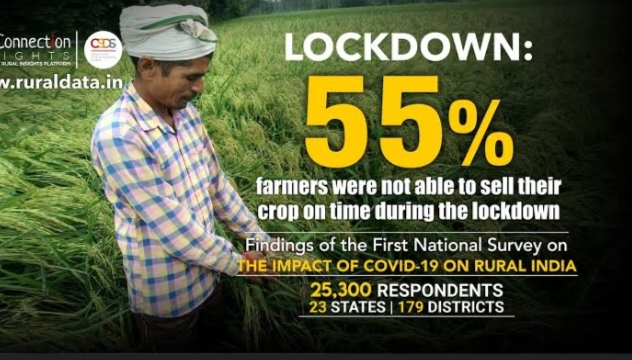*Farmers are a crucial part of the food value chain in India, as well as a critical element of the global food system.
*The COVID-19 pandemic has brought new risks that threaten livelihoods as well as food security.
*India is home to about 120 million farmers who contribute over 40% of the country’s grain production, and over half of its fruits, vegetables, oilseeds and other crops.
*Much of the global share of food staples such as rice and wheat come from India, and almost half of the population in India depends on agriculture for their livelihood.
*Every year, Indian farmers face risks such as low rainfall, price volatility and rising debts. But risks from the COVID-19 pandemic are putting new challenges in front of a sector that is already under threat.
*The nationwide lockdown came at an unfortunate time for farmers, as it was the harvest season for the rabi (winter) crop. The lockdown created both a shortage of labor and equipment – migrant laborers in India usually move to rural areas during harvest, and farmers often rent harvesting equipment as this is cheaper than purchasing it.
*In addition, it was estimated that although India’s food bank had more than three times the minimum operational buffer in stock.
*Especially at the beginning of the lockdown when transport was restricted. Drivers abandoned trucks full of produce in the middle of interstate highways.
*Markets eventually started running short of supplies, owing to food rotting in transit or never making it to point of sale.
*Another issue that is cause for concern is the availability and access to seeds, fertilizers and pesticides for the next crop season.
*However, the COVID-19 induced disruptions have reduced production capacity for farm inputs and have led to an increase in price, making these resources inaccessible to smallholder and marginal farmers in the country.
*The COVID-19 crisis is not permanent, but it has magnified the vulnerabilities already present in the food system in India.
#Main Problems often faced by Indian Farmers
1)Insufficient Water Supply.
2)Less Use of Modern Farming Equipment
3)Over Dependence on Traditional Crops.
4)Poor Storage Facilities.
5)Transportation Problems.
6)High Interest Rates.
7)Government Schemes are yet to reach Small Farmers.

